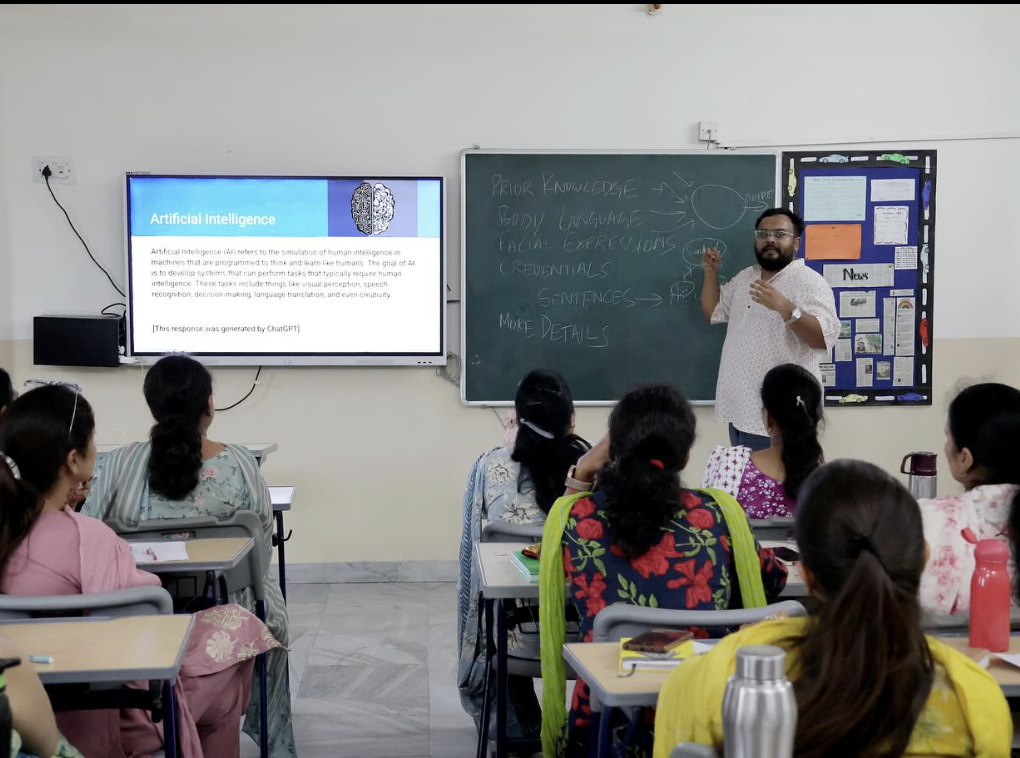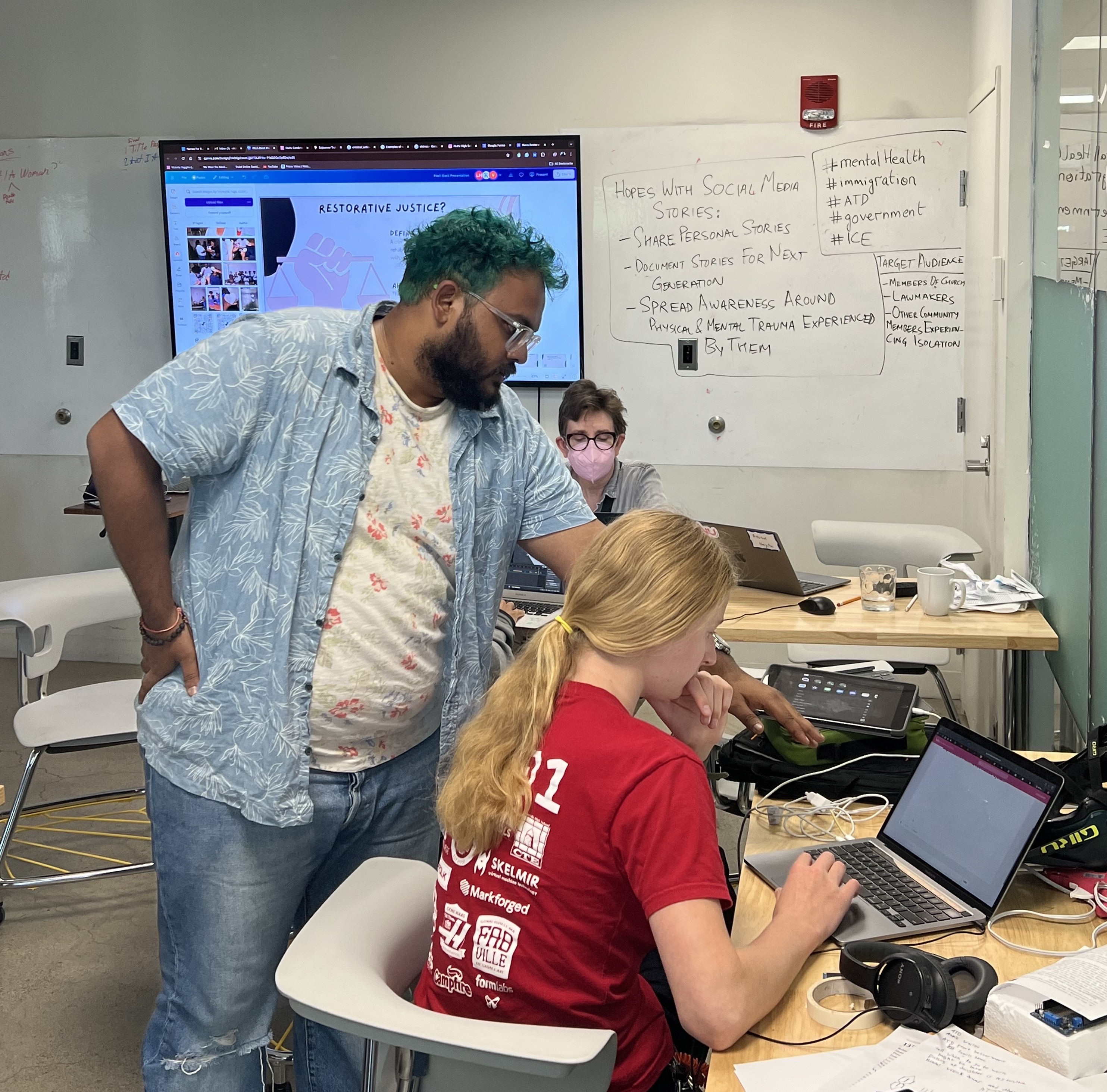July 30, 2025
Designing Education: Coach Ayush Gandhi
Learning that meets you where you are

Growing up in India, NuVu High School coach Ayush Gandhi's father held a transient position, which required moving the family around the country often. Because of this, he attended nine different schools across a variety of settings: rural, urban, public, and private.
During this time, Ayush says that even though he had to put extra effort into fitting in and learning the local context and curriculum at each school he attended, he would still thrive in the overall academic setting. “This made me wonder why some of my peers, each of whom had access to the same knowledge as I had, were still struggling in these schools,” he recalls. Thus began his lifelong curiosity about alternative education and a desire to solve the problem of a one-solution-fits-all type of education. “I realized that if we want to see education as a public good, we need to solve this problem.”

During his undergraduate studies in India, the aspiring teacher volunteered at The Doorstep School in Pune, teaching children of construction site workers. “We would set up a temporary classroom at the construction site for grades two to eight. This was my first experience as a teacher, which was very interdisciplinary because a lot of students had very different academic needs,” he explains.
After finishing a software engineering degree, Ayush worked as a C++ developer. “While it was a fine technical job, I didn't feel that tangible impact that I hoped to make at that time.” To address his dissatisfaction, Ayush embarked upon an adventure—52 destinations in one year. “Essentially every weekend I would go somewhere, and invariably once there, I would naturally end up going to a local school hoping to understand what was happening there,” he explains. “That showed me that my interest in education wasn’t a passing thing.”
That interest led Ayush to a postgraduate diploma in liberal arts, with a Young India Fellowship from Ashoka University; various educational internships and academic roles that eventually led him to Harvard for a Master’s in Education. With each educational experience, Ayush became increasingly convinced that his ultimate goal was to eventually bring what he was learning back to India to establish an alternative curriculum, and a framework for schools to adopt—much like the modern-day NuVuX.
In the meantime, there is NuVu High School.
“I learned about NuVu through Professor Linda Nathan, who did a course at Harvard called Building Democratic Schools,” recalls Ayush. “In fact, I got to know about NuVu as an example case study in that course.” Upon meeting NuVu High School CEO Saeed Arida and learning about NuVu’s mission, Ayush says he felt that all of this perfectly aligned with his life goals.
“I think this is sort of a dream that I'm living,” he says. “I taught in India, but to be creating content around subjects I'm excited about, and introducing powerful concepts, all seems so very meaningful to me,” he reflects. “I get to do this every day and I am forever full of gratitude for that.”
What’s remarkable is that this young educator is not only teaching, but also learning.

“Design thinking itself is a powerful tool that I discovered here at NuVu,” he says. His first studio was human-centered design, and Ayush says the idea of getting to a specific problem at a core level, then understanding how it affects the different humans involved—then solving it—has been a game changer.
“NuVu has shown me that these individualized learning pathways can be brought through a design thinking framework,” says Ayush. “So as a school model—when your students have different perspectives, and can understand where different people are coming from—it is such a powerful tool for this age.”
Currently building studios that integrate math-based subjects into the design studio model, Ayush says the freedom given to create design studio content has been enormous fun.
“For instance, working with the students and understanding how different individuals uniquely see and understand math has been a beautiful journey,” he shares. “Both supporting students as a coach, while also working behind the scenes to create curriculum.”
Ayush says that one of the biggest takeaways from NuVu has been the strength of a project-based curriculum.
“The power of project-based learning is that once the students know the focus of a project, they go on a personal learning journey. The students will extract the resources out of me so that they can build the project themselves. I am just the guide, and I find this idea of students taking the learning in their own hands is so powerful.”






